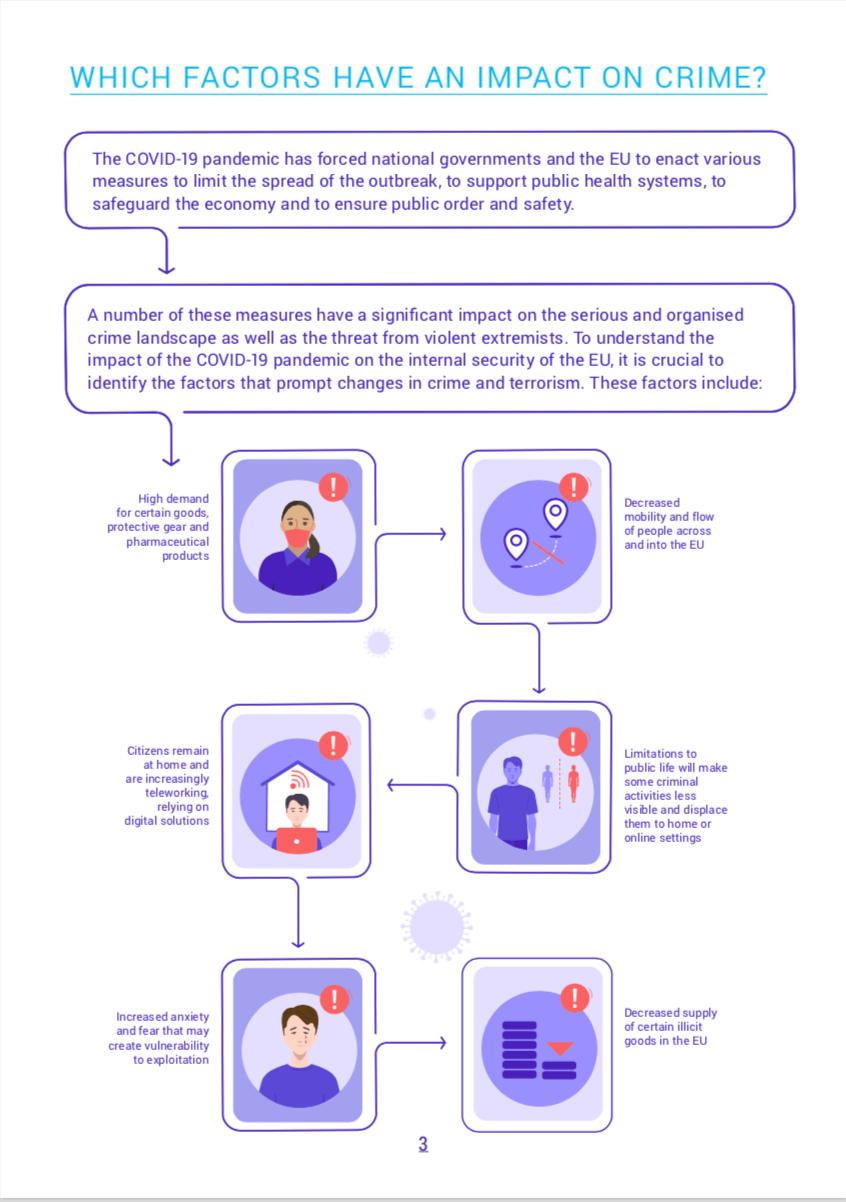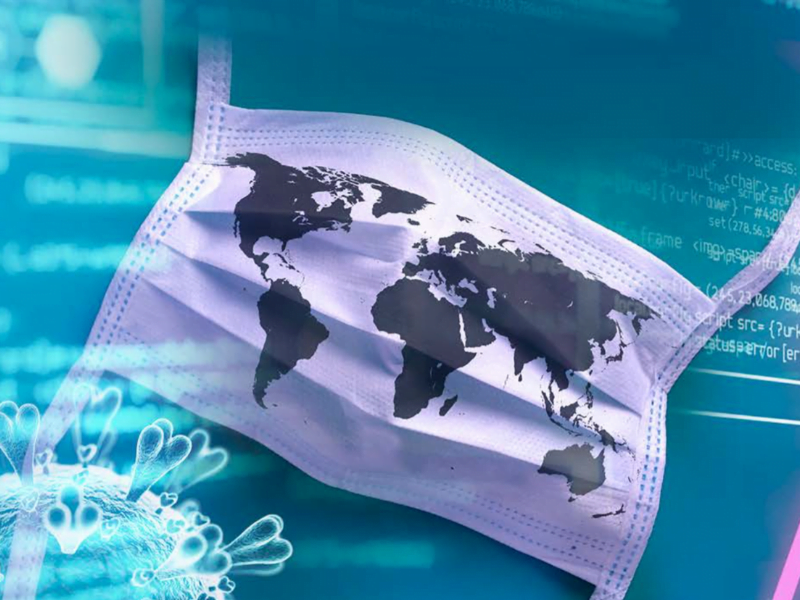Criminals have quickly seized the opportunities to exploit the crisis by adapting their modes of operation or developing new criminal activities to exploit the COVID-19 pandemic, according to a report published by Europol that warns of the methods being used to profit from the vulnerable.
The report, titled Pandemic Profiteering: How Criminals Exploit the COVID-19 Crisis, provides an overview of how criminals are adapting their misdeeds to the coronavirus crisis. It is based on information Europol received from EU Member States on a 24/7 basis.
“The current crisis is unprecedented in the history of the European Union (EU),” said Executive Director Catherine De Bolle.
“Crime is a seriously disrupting factor and a diversion from national and EU efforts to ensure the health and safety of citizens. That is why it is relevant to reinforce the fight against crime.”
A high demand for certain goods, such as protective masks, and decreased supply of certain illicit goods in the EU, together with decreased mobility, because people are forced to stay indoors, are among the factors that prompt changes in how organised crime operates.
Key findings
The global pandemic of COVID-19 is not only a serious health issue but also a cybersecurity risk. Criminals swiftly took advantage of the virus proliferation and are abusing the demand people have for information and supplies.
There is a long list of cyber attacks against organisations and individuals, including phishing campaigns that distribute malware via malicious links and attachments, and execute malware and ransomware attacks that aim to profit from the global health concern.
Information received from law enforcement partners also strongly indicates increased online activity by those seeking child abuse material, Europol said.
The pandemic has an impact on Darkweb operations too. Certain illicit goods will become more expensive, as source materials become unavailable. Vendors on the Darkweb offer special coronavirus goods (scam material) at discounts.

Fraud and scams
Fraudsters have been very quick to adapt well known fraud schemes to target individual citizens, businesses and public organisations.
These include various types of adapted versions of telephone fraud schemes, supply scams and decontamination scams. Fraud linked to the current pandemic is likely highly profitable for the criminals involved as they attempt to capitalise on the anxieties and fears of victims throughout this crisis period.
Businesses seeking to purchase supplies such as protective masks and other equipment are being targeted by scammers.
A Member State’s investigation focused on the transfer of €6.6 million from a company to another company in Singapore to purchase alcohol gels and masks. The goods were never received.
In another case reported by a Member State, a company attempted to purchase 3.85 million masks and lost €300,000. Similar supply scams of sought-after products have been reported by other Member States.
Counterfeit and sub-standard goods
The distribution of counterfeit and/or sub-standard goods has been a key area of criminal activity in relation to the COVID-19 pandemic.
The sale of counterfeit healthcare and sanitary products as well as personal protective equipment (PPE) and counterfeit pharmaceutical products has increased manifold since the outbreak of the crisis.
There is a particularly high demand for certain types of healthcare and sanitary products (masks, gloves, cleaning products, pharmaceutical products), which has created a substantial market for product counterfeiters, fraudsters and profiteers.
Some developments, such as the distribution of fake corona home testing kits, are particularly worrying from a public health perspective.
The number of offers of counterfeit and sub-standard goods will continue to increase, particularly online, Europol said. There is a risk that counterfeiters will use shortages in the supply of some goods to increasingly provide counterfeit alternatives both on and offline. This may entail sub-standard or counterfeit foods, hygiene items and other everyday goods.
An operation by Europol and Interpol to target trafficking counterfeit medicines in 90 countries worldwide between 3 and 10 March resulted in 121 arrests and €13 million in potentially dangerous pharmaceuticals seized. In addition, 37,000 unauthorised and counterfeit medical devices were seized (mostly surgical masks and self-testing kits) and 37 organised crime groups dismantled.
Property theft
The same types of thefts using deception encountered during the COVID-19 crisis have existed before, but criminals have adapted their modi operandi to the current situation. The number of attempts involving these types of thefts and scams is likely to increase across the EU.
Multiple Member States have reported a similar modus operandi for theft. The perpetrators gain access to private homes by impersonating medical staff providing information material or hygiene products or conducting a ‘corona test’.
Cyber crime
Europol reports the number of cyber attacks is significant and expected to increase further.
The report notes an attack on critical health infrastructure on a hospital in the Czech Republic.
Cybercriminals carried out a cyber attack on Brno University Hospital amid the COVID-19 outbreak in Europe. Since a state of emergency was declared in Czechia on 12 March, the attack was considered an attack on a critical infrastructure.
The incident prompted the hospital to postpone urgent surgeries and reroute new acute patients to a nearby alternative hospital. The hospital was forced to shut down its entire IT network during the incident and two of the hospital’s other branches, the Children’s Hospital and the Maternity Hospital, were also affected.
These types of attack during a public health crisis such as the COVID-19 pandemic are particularly threatening and carry very real risks to human lives.












